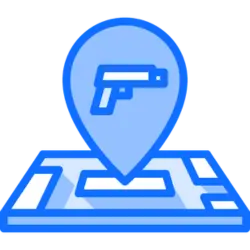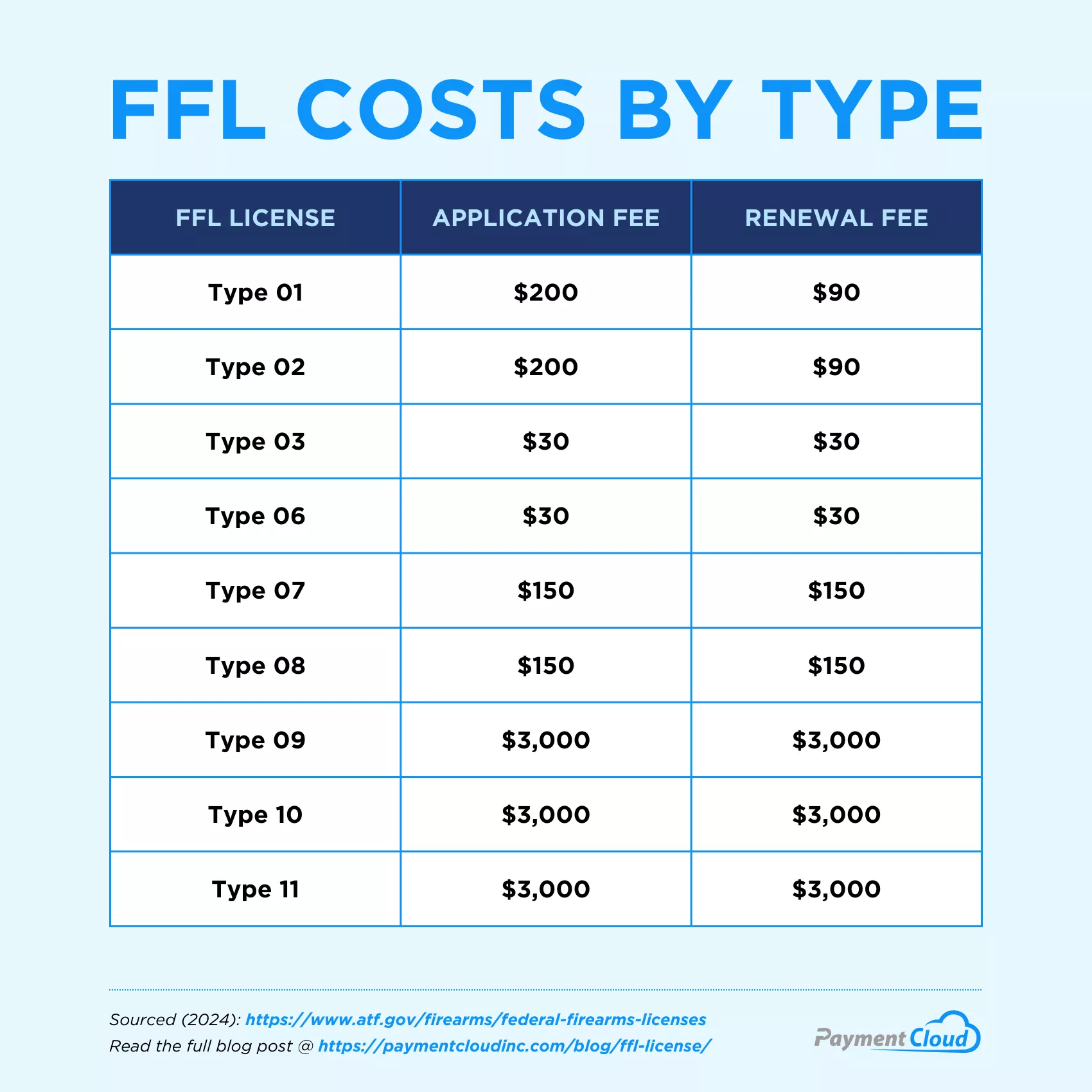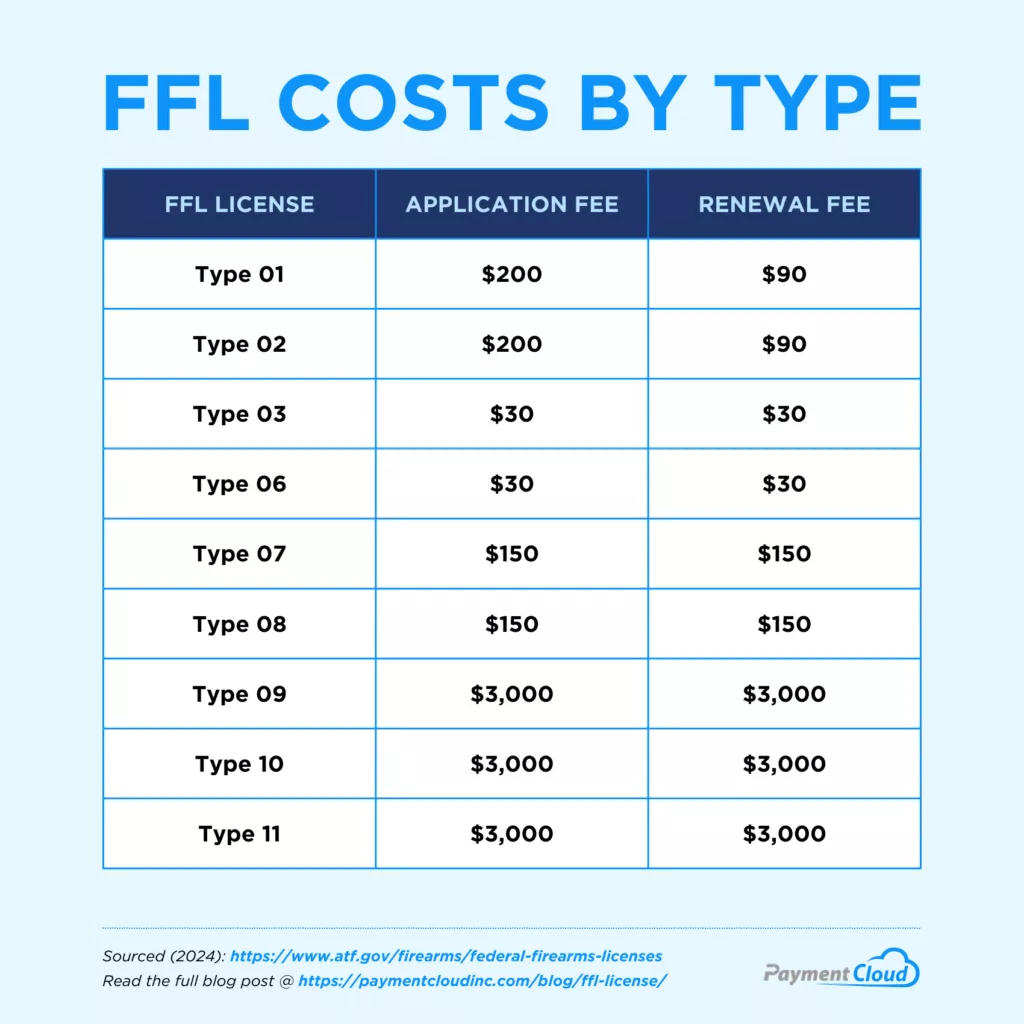Oregon is a great place to be if you’re considering getting into the firearms industry. This is because Oregon abides by the basic federal regulations for arms dealing and does not implement many of its own rules or guidelines. However, you will need an FFL in Oregon to start a firearms business.
In this article, we will explore the five easy steps to get an FFL in Oregon, allowing you to turn your firearms business dreams into a reality.
Getting an Oregon FFL: An Introduction

Before you can get an FFL in Oregon, you should understand what an FFL is.
An FFL, or Federal Firearms License, is a license the federal government grants an individual or business to manufacture, import, or sell firearms and/or ammunition. To obtain an FFL, you’ll need to submit an application to the Bureau of Alcohol, Tobacco, Firearms and Explosives (ATF).
Depending on your business model, there are actually nine different FFLs to choose from. The FFL you need will depend on whether you plan to import, manufacture, or deal firearms, as well as the style of firearms or ammunition you choose to work with.
Step 1: Meet All of the FFL Requirements
FFLs can have requirements at the federal, state, and local levels. Oregon is no exception. That said, Oregon’s federal and state-level requirements are relatively straightforward. It’s the local requirements that can get a bit stickier. In this section, we will touch on all three levels of the Oregon FFL requirements.

Federal requirements
The federal requirements for an FFL, set by the Bureau of Alcohol, Tobacco, Firearms, and Explosives (ATF), are the same in all 50 states. Key requirements include:
- Being at least 21 years of age
- Maintaining a clean criminal record
- Holding U.S. citizenship or permanent resident status
- Having a physical business location
- Meeting all safety and security requirements
Every FFL applicant must meet these federal standards, no matter which state they operate in. The ATF thoroughly reviews each application to ensure compliance with these requirements before issuing a license.

State requirements
On top of the federal requirements, each state can implement its own FFL regulations. States tend to break down their state-level requirements into two categories:
- Business registration – To operate as an FFL holder in Oregon, you must register your business with the state, even if your company is already registered in another jurisdiction. You can complete this process through the Oregon Secretary of State website, which provides detailed guidance for new business registration.
- State licensing – Unlike many other states that require additional permits or state-specific licenses, Oregon only requires the standard business registration described above. Once you obtain your federal FFL and complete your business registration, you can legally deal in firearms, including handguns, rifles, and ammunition, without additional state licensing. Keep in mind that if you plan to relocate your FFL business to another state in the future, you’ll need to research and comply with that state’s specific requirements, as regulations vary significantly by jurisdiction.

Local and zoning requirements
Local and zoning requirements are usually the trickiest piece of the compliance puzzle. Some local laws make it difficult to open a firearms business in busy parts of town (i.e., those with high levels of foot traffic) or residential areas. Many larger cities will also pass laws or zoning requirements to try to push FFL owners and firearms businesses to the outskirts. Also, applying to zone for a home-based firearms business can make neighborhood residents uncomfortable (so you might receive some pushback from them).
Luckily, in Oregon, even in the capital of Salem or the largest city, Portland, there are actually no city-specific regulations in place. When opening up a business, you will still need to work with local zoning authorities to ensure your business can operate in your chosen location, but it’s a much easier place to operate than many.
Step 2: Select the Type of FFL you Need
The second part of opening a firearms business is deciding what type of business you want to run. For instance, if you want to manufacture firearms, you will need a different type of FFL than if you are trying to start a business that imports them.

FFL license types
There are nine types of FFLs you can choose from. As we touched on, the best FFL for your business depends on the type of business you wish to start.

Step 3: Complete an Online FFL Course
The third recommended step when starting a firearms business is to complete an online FFL course. It’s important to understand the rules and regulations your firearms business will be expected to follow to ensure you never get into any legal trouble and to stay in compliance with federal and state regulations.
A quick Google search should bring up plenty of options to find an online FFL course. From there, you can determine which site you think aligns most closely with your future business and its operating location. While we recommend an FFL course, no federal or state requirements mandate you to take one. So you can get an FFL without taking an online course.
Step 4: Apply for Your Oregon FFL
Step four, and maybe the most exciting step before starting your firearms business, is applying for your Oregon FFL. Once you have decided on the type of firearms business you wish to start, have a solid business model, and have passed both federal and local regulations, it’s time to pay the application fee and await a response from ATF.
Once your application has been received, the ATF will run a background check with everyone listed as a relevant “responsible person” attached to your business. This includes anyone listed as an owner, partner, manager, etc.
Step 5: Interview with a Representative from Your Regional ATF Office

The last step before you receive your FFL in Oregon will be to have an interview with a representative from your regional ATF Office.[1]ATF. “Local ATF Offices | Page 7 | Bureau of Alcohol, Tobacco, Firearms and Explosives”. Accessed April 29, 2024. An Industry Operations Investigator (IOI) will sit down with you to investigate your application further.
This meeting is intended to ensure you have done your research, know all rules and regulations both federally and in Oregon, have a safe and legally zoned area to start your business, and that your business model is satisfactory. This meeting is not to be taken lightly, as the IOI investigator will put together a report and write a recommendation on whether or not they think they should approve your application for an FFL.
FFL License Costs in Oregon
As we mentioned earlier, the cost of an FFL in Oregon (or any state, as the cost is federally regulated) can range drastically. The price can be between $30 and $3,000, depending on the type of business you plan to start. However, the most common FFL applications cost between $30 and $200.

Getting a Federal Firearms License in Oregon: Closing Thoughts
Starting a firearms business and obtaining a Federal Firearms License (FFL) in the United States can be a daunting task, but in Oregon it’s relatively straightforward.
One often overlooked part of starting a firearms business is finding a reliable payment processing partner to help you start accepting payments. At PaymentCloud, we specialize in providing merchant accounts for firearm businesses, ensuring you always receive the payment you deserve. With the right resources and support, your Oregon firearms business will be up and running in no time.
High-Risk Businesses Wanted
Your troubles of getting approved are over!
Satisfaction
FFL Oregon FAQs
Hopefully, by now, you will have everything you need to apply for an FFL in Oregon and realize your new business idea. But let’s look at some frequently asked questions to tie up any loose ends before you apply.
Do I need an FFL in Oregon?
Yes, you need an FFL to start a firearms business in Oregon. Firearms businesses are federally regulated, so you will need an FFL no matter what state you want your business in.
Who can apply for an FFL in Oregon?
Anyone who can pass the federal regulations can apply for an FFL in Oregon.
Do I need to register as a business to get an Oregon FFL?
Yes, when applying for an FFL in any state, you must first register your business. The same is true in Oregon, as all businesses are required to register to operate. It’s good to remember that even if you previously registered your business in another state, you will need to re-register in the new one.
How can I find an FFL dealer in Oregon?
While there are many ways to find an FFL dealer, the best way is to start by searching online. The Bureau of Alcohol, Tobacco, Firearms, and Explosives (ATF) maintains a database of all licensed dealers, which you can search by state and ZIP code.[2]ATF. “ATF”. Accessed April 29, 2024. Once you’ve found a few potential dealers in your area, you can narrow down your choices by reading online reviews or contacting the dealers directly to ask about their policies and procedures.
Can you have a home-based FFL in Oregon?
Yes, home-based FFLs are legal in Oregon. However, it’s typically harder to get an FFL for a home-based firearms business because of zoning regulations.
Can I apply for an FFL with an Oregon gun trust?
A gun trust is not considered a person or a business. Because of this, you cannot apply for an FFL with just an Oregon gun trust.
Does the BATF&E have requirements for an FFL in Oregon?
Yes, The BATF&E (or the ATF) has specific requirements for an FFL in Oregon. The BATF&E is a federal company that sets the FFL requirements in all 50 states, so everyone who applies for an FFL must abide by their regulations.
Do I need to apply for a SOT for my Oregon FFL?
You only need an SOT (Special Occupational Taxpayer) status if you plan to deal in items like silencers, machine guns, or short-barreled firearms. SOT licenses require an annual fee of $500-$1,000 and can only be obtained after receiving your FFL. This extra requirement is because of the National Firearms Act.[3]ATF. “National Firearm Act“. Accessed April 29, 2024.
How long does it take to get your FFL in Oregon?
The most time-consuming part will be putting together a business plan, ensuring you comply with federal, state, and local/zoning regulations, and getting all your ducks in a row before applying. However, once you submit your application, you should have your acceptance or denial in around 60 days.
How can I transfer my FFL to Oregon?
It is not possible to transfer an FFL. An FFL in all 50 states will stay with the owner who applied for it. If you wish to pass your business off or sell it, the new owner must also go through the application process.
How much does an FFL transfer cost in Oregon?
During an FFL Transfer, a gun buyer authorizes a third-party Federal Firearms License holder to accept a firearm shipment and conduct a background check on the buyer. The FFL Transfer costs vary based on the type of firearm being transferred and the chosen company, typically ranging from $20 to $200.
How hard is it to get an FFL in Oregon?
Getting an FFL in Oregon is relatively easy compared to other states. Many other states add local and state legislation, making this process difficult. Oregon does not have such additional regulations.




